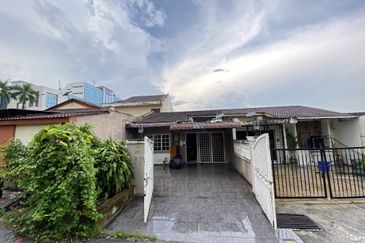KUALA LUMPUR (Oct 29): Moody's Investors Service said in the third edition of its "China Property Focus" that an improving sales trend and bond market sentiment are supporting property developers' credit profiles.
However, ongoing declines in prices and deteriorating balance sheet liquidity for some developers continue to exert near-term pressures, Moody’s said in a statement Monday.
Kaven Tsang, a Moody’s vice president and senior analyst said capital raisings in the offshore bond market were credit positive for some developers as they had accordingly managed to improve their
liquidity and debt maturity profiles.
Moody’s said that so far in October, US$1.15 billion of bonds had been issued compared to US$850 million in September, bringing the total amount issued during July-October to about US$2.32 billion equivalent.
This compares to US$2 billion issued in the first half of 2012, it said.
"Based on preliminary data for the four major cities, sales, as measured by GFA in the recent golden week -- a traditional peak season—were softer when compared with the same period in September, but showed growth year on year," said Tsang.
"We expect sales in the rest of the year to rise year on year, due mainly to the market's lackluster performance in the equivalent period of 2011,” he said.
Tsang said the 15 developers tracked and rated by Moody's continued to outperform the market, reporting a 6.9% year-on-year increase in accumulated sales between January and September.
“This trend will likely continue in the near term," he said.
Moody’s said the number of cities registering property price declines rose mildly to 55 in September from 53 in August, indicating that pricing pressures in certain cities remain. But this figure was below 58 in July.
Meanwhile, a Moody’s vice president and analyst, Franco Leung said Moody's also expects that prices would experience mild year-on-year declines in the near-and medium-term, given that the supply of mass market products will increase, and also because of continuing tight government restrictions on property investments.
"Their weakened liquidity mainly reflects higher refinancing needs for the near term, and/or weak contract sales year to date for low rated developers.
"Notwithstanding the rising number of developers scoring an SGL-4, most issuers are able to raise funds from both the bank and bond markets to address their refinancing needs,” said Leung.
TOP PICKS BY EDGEPROP

R&F Princess Cove, Tanjung Puteri
Johor Bahru, Johor

Kawasan Perindustrian Mount Austin
Johor Bahru, Johor

The Hills, Horizon Hills
Iskandar Puteri (Nusajaya), Johor

The Hills, Horizon Hills
Iskandar Puteri (Nusajaya), Johor

Horizon Hills The Green
Iskandar Puteri, Johor

SkyLuxe On The Park @ Bukit Jalil
Bukit Jalil, Kuala Lumpur















hero.jpg?GPem8xdIFjEDnmfAHjnS.4wbzvW8BrWw)



